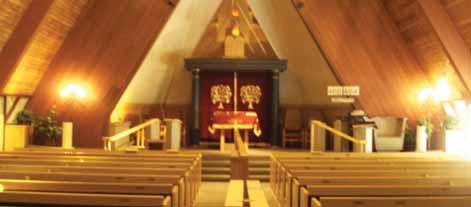OU Helps Obtain Homeland Security Grants for Jewish Institutions
Thanks, in part, to the aggressive efforts of the OU’s Institute for Public Affairs (IPA), the US Department of Homeland Security awarded $19 million in security grants to nonprofit institutions this year. Of the 271 that received the grant, 254 are Jewish.
“Every synagogue is a potential target,” says Rabbi Judah Dardik of Beth Jacob Congregation in Oakland, California, whose shul was approved to receive a grant. “We are a prominent Orthodox synagogue located on a main thoroughfare. We certainly represent Judaism in the area,” says Rabbi Dardik.
The OU-member shul has had its security cameras stolen three times and an arsonist attempted to burn down the building in 2002. The grant will be put toward the installation of a security fence, among other measures.
“Washington sees Jewish institutions as being high risk,” says Nathan Diament, IPA director. “Unfortunately, the grants are only available in locations identified by the Department of Homeland Security as ‘high-risk urban areas.’ If there is a day school in Tulsa, Oklahoma, and it doesn’t fall into that list of areas, it cannot have access to the funds.”
In the aftermath of 9/11, through the support of key politicians, such as Senators Barbara Mikulski (D-MD) and Arlen Specter (D-PA), Homeland Security grants were made available to religious and other non-profit institutions most vulnerable to attack.
“Across the globe, if there are violent repercussions to events in the Mideast or elsewhere, all too often, it is Jewish institutions, and the men, women and children who pray, study, and visit them, who are targets,” says Howie Beigelman, IPA deputy director of public policy. “Sadly, we’ve seen it in Turkey, Argentina, on the high seas and here in the United States.”
 OU-member shul Beth Jacob Congregation in Oakland, California, recently received a security grant from the Department of Homeland Security thanks to the efforts of the IPA. Courtesy of Beth Jacob Congregation
OU-member shul Beth Jacob Congregation in Oakland, California, recently received a security grant from the Department of Homeland Security thanks to the efforts of the IPA. Courtesy of Beth Jacob Congregation
Each year, as soon as Congress appropriates the funding, IPA informs shuls and day schools across the country. The IPA office assists the institutions, guiding them through the application process, which includes a comprehensive security assessment. “Post 9/11, Jewish communities are learning to take security more seriously,” says Beigelman.
Rosenbaum Yeshiva of North Jersey, in River Edge, New Jersey, will be receiving the maximum grant amount this year. Allen Pfeiffer, chairman of the school board, is grateful. “We have 1,000 students here, some of whom attend Riverdale Jewish Center, the target of a failed bomb plot in 2009,” he says. “We’ve doubled in size over the last ten years and have three different buildings with multiple entrances. We looked into what it would cost to have a proper security system where the office can see who’s coming in and out, and where the doors are locked and alarmed properly, but given our budget, we weren’t able to pull it off.” The grant will now make these security enhancements possible.
“If it wasn’t for the OU, we would never have gotten the application,” says Chanoch Kanovsky, president of the OU-member shul Woodside Synagogue Ahavas Torah in Silver Spring, Maryland. The shul was the target of arson in 1986. For more than two decades the shul couldn’t afford to implement essential security improvements. With the grant money it will receive, it will now be able to install a basic alarm system, reinforced metal doors with electromagnetic locks and window wraps to prevent shattering in the event of a blast.
“The OU is in the business of finding serious solutions to immediate communal problems,” says Maury Litwack, IPA deputy director of federal affairs. “This funding is one element of our ongoing state and federal work to facilitate policy which addresses criticial needs.”
Bayla Sheva Brenner is senior writer in the OU Communications and Marketing Department.

